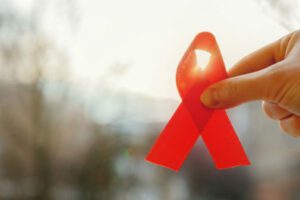لنتحدّث عن…انخفاض الرغبة الجنسية لدى المرأة

Your libido is your sex drive and loss of libido can affect many women at certain times in their lives. In fact, according to the UK’s Sexual Advice Association, sexual problems in women are increasingly common and are estimated to affect 1 in 3 young and middle-aged women, and 1 in 2 older women.
There are both psychological and physical reasons for reduced sex drive in a woman. Female libido can go up and down depending on where a woman is in her life, both physically and mentally. Certain life triggers such as relationship or job pressures, pregnancy, menopause, illness and some medications may cause a woman’s sexual desire to fluctuate.
The Mayo Clinic lists the symptoms of low sex drive in a woman as: having no interest in any sexual activity, including masturbation; never or seldom having any sexual thoughts or fantasies; and being concerned by her lack of sexual activity and fantasies. If low libido continues for some time it can be distressing and cause relationship conflict, so it’s important to identify the underlying causes.
What causes female low sex drive?
Low libido in women can be triggered by:
- Relationship issues
- Job and social pressures
- Low testosterone or androgen levels. Female testosterone peaks in the late teens to early 20s and then steadily declines over the years. Levels drop rapidly after menopause. It’s worth noting that elevated levels of testosterone can be a symptom of polycystic ovary syndrome (PCOS)
- Medical conditions such as diabetes, endometriosis, fibroids, thyroid disorder and high blood pressure
- Depression, anxiety and other mental illnesses
- Medications including certain anti-anxiety medications and antidepressants, drugs to lower blood pressure and some oral contraceptives
Can you treat low sex drive in women?
The combination of physical and psychological factors leading to low sex drive in a woman can mean that treatment is complex. Where loss of libido is persistent a doctor may diagnose hypoactive sexual desire disorder (HSDD) and will try to determine what is impacting on sexual desire. Appropriate treatment options include:
- Relationship counselling or sex therapy
- Change in medications or altered dose
- Addressing underlying medical conditions. For example, fibroids may be removed
- Prescribing hormone therapy. In post-menopausal women painful vaginal dryness is linked with lowered sex drive and can be treated with vaginal estrogen creams
- Testosterone therapy to boost sexual desire in peri- and post-menopausal women has been controversial and is not FDA-approved but it is sometimes prescribed to “help lift a lagging libido”.
A low sex drive can leave a woman feeling distressed and frustrated and can harm her quality of life. Seeking medical advice can help to establish the underlying causes of low libido and treatment options.
Get an at-home blood test to discreetly learn whether your symptoms are caused by a deficiency like low testosterone.
Sources
Women’s Sexual Problems, Sexual Advice Association https://sexualadviceassociation.co.uk/womens-sexual-problems/
Low Sex Drive in Women, Mayo Clinic https://www.mayoclinic.org/diseases-conditions/low-sex-drive-in-women/diagnosis-treatment/drc-20374561










